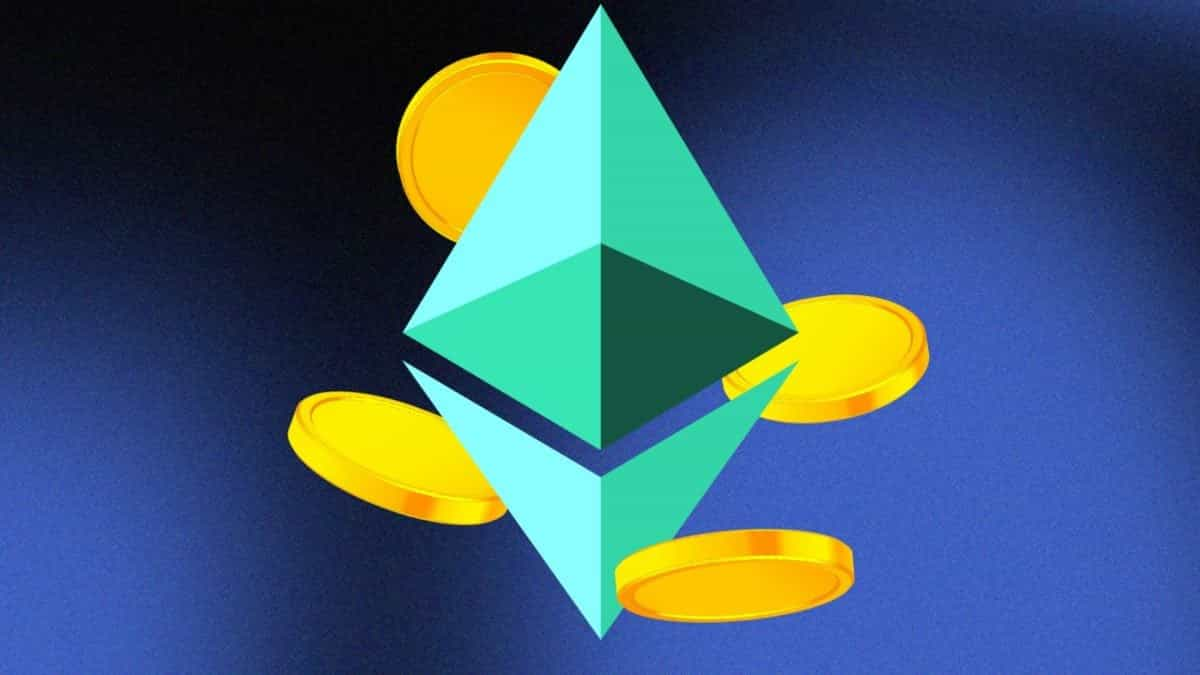About Ethereum
Ethereum (ETH) is a decentralized blockchain platform that enables developers to build and deploy smart contracts and decentralized applications, providing them with a secure and scalable infrastructure. It operates on its native cryptocurrency called ether, used by participants to transact and incentivize network operations.
Ethereum stands out for its ability to support smart contracts, which are written into code and stored on the Ethereum blockchain. These contracts eliminate the need for intermediaries or third parties, as pre-defined actions are carried out when they are triggered. This sets Ethereum apart from other cryptocurrencies and traditional financial systems. Smart contracts on Ethereum have diverse applications, automating processes like financial transactions, supply chain management, and voting systems. For instance, a rental agreement stored as a smart contract could transfer payment from a tenant to a landlord on the specified due date, without manual intervention or reliance on a trusted third party.
The execution of smart contracts on Ethereum brings transparency and immutability to the network. Once deployed, these contracts cannot be altered or tampered with due to the decentralized nature of the blockchain. This ensures that the agreed-upon terms and conditions are followed without any potential for manipulation or fraud. Since the contract is visible to all participants on the Ethereum network, it promotes transparency and trust, allowing independent verification of the contract's execution and outcome. Ethereum's smart contract feature revolutionizes the way agreements and transactions are conducted, eliminating intermediaries, automating processes, and ensuring transparency and immutability. This functionality opens up a world of possibilities for decentralized applications and contributes to a more efficient and secure financial system.
About Bitcoin
Bitcoin is a decentralized digital currency that allows for peer-to-peer transactions without the need for intermediaries, utilizing blockchain technology for secure and transparent transactions. It operates as a store of value and a medium of exchange, with a limited supply of 21 million coins.
Bitcoin is known for its decentralized nature. Unlike traditional financial systems, Bitcoin operates on a decentralized network called the blockchain. Transactions are verified and recorded by a network of computers owned by individuals known as miners. This decentralized system ensures that no single entity can control or manipulate Bitcoin transactions. The decentralization of Bitcoin is achieved through a consensus mechanism called Proof-of-Work (PoW), where miners compete to validate and add new transactions to the blockchain. This mechanism provides security and immutability to transactions, reduces the risk of censorship and government intervention, and promotes financial inclusivity by providing access to financial services for the unbanked or underbanked individuals.
The decentralized nature of Bitcoin offers various advantages. It provides security and immutability to transactions. The distributed nature of the blockchain makes it difficult for malicious actors to alter transaction records or engage in fraudulent activities. Additionally, decentralization reduces the risk of censorship and government control. Transactions cannot be blocked or controlled by any entity, allowing individuals to transact freely and anonymously. Lastly, decentralization promotes financial inclusivity by enabling individuals without access to traditional banking infrastructure to participate in the Bitcoin network.








